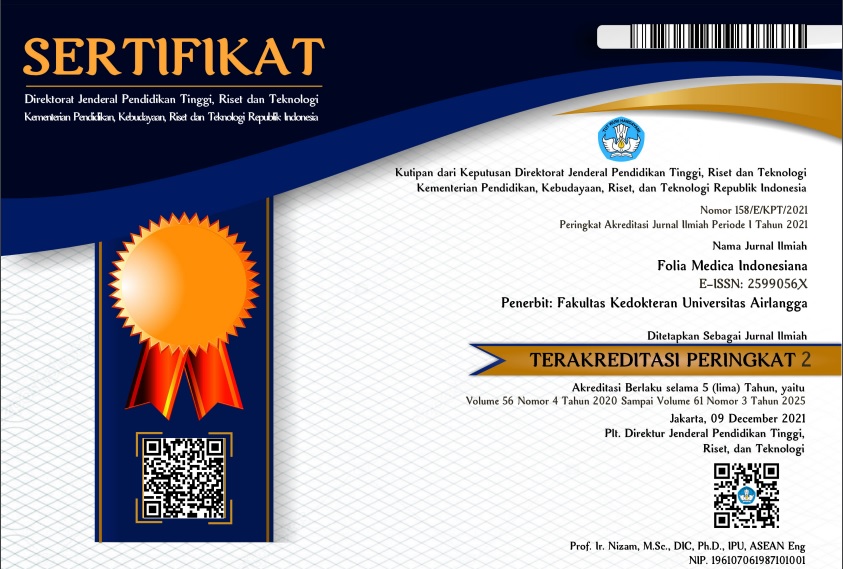Abstract
Indonesia has a variety of herbal plants used as herbal/traditional medicines. Singawalang (Petiveria alliacea) is one of the herbal plants usually used in the United States as a cough medicine because of its expectorant effect. Singawalang plants are also widely used to cure tuberculosis. However, the investigations on the effects of toxicity on this plant leaf extract has not been done. This study aims to investigate the effects of active compounds in singawalang against Mycobacterium tuberculosis using a variety of solvents. The active compound of ethanol extract was obtained by maceration using ethanol solvent. The extract was then fractionated using column chromatography method, and using gradual eluent to produce fraction. The doses used were 0.5 mg/ml; 1 mg/ml; 2 mg/ml; 70% ethanol, h-hexane, benzene, chloroform, ethylacetate, silica gel 60GF254, Middlebrook 7H9, and 7H10. The reactions using Singawalang leaf extract with various solvents resulted in a reduction of the Mycobacterium tuberculosis colony growth, compared with the reaction on control treatment, treatment using DMSO 1%, and treatment using 70% ethanol. As a conclusion, the various solvents used did not make a significant difference. However, control treatment, treatment using DMSO 1%, and treatment using 70% ethanol had significant results.
Keywords
Singawalang (Petivera alliacea), singawalang active compound, Mycobacterium tuberculosis
First Page
108
Last Page
112
DOI
10.20473/fmi.v53i2.6353
Publication Date
11-3-2017
Recommended Citation
Munir, Ratna Sofaria; Fatimah, Nurmawati; and Hermanto, Bambang.
2017
Effect of the leaf pettiveria alliacea extract active compound on mycobacterium tuberculosis.
Folia Medica Indonesiana. 53,
2 (Nov. 2024 ), 108-112.
Available at: https://doi.org/10.20473/fmi.v53i2.6353






